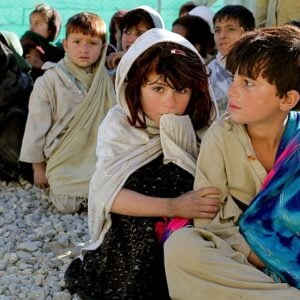Around 260,000 civilians, including 130,000 children, remain trapped in the main camp for internally displaced people in El Fasher, Sudan, enduring dire conditions without humanitarian aid for over 16 months. The Rapid Support Forces (RSF), which has been fighting the military government for control of Sudan for more than two years, has cut off all supply lines. El Fasher remains the last urban area under government control, and the siege has left residents facing extreme deprivation.
UNICEF Executive Director Catherine Russell described the situation as a “devastating tragedy,” highlighting that children in El Fasher are starving while lifesaving nutrition services are being blocked. The siege has been accompanied by deadly violence, including a recent attack on Abu Shouk camp that reportedly killed seven children. Since May 2024, over 1,100 grave violations have been verified in El Fasher alone, including the killing or maiming of more than 1,000 children. At least 23 children have experienced rape, gang rape, or sexual abuse, and many others have been abducted, recruited, or used by armed groups. Health and education facilities have also been targeted, with 35 hospitals and six schools struck, resulting in numerous casualties among children.
The humanitarian crisis is worsening as aid access remains blocked. UNICEF warns that suspension of medical services due to depleted supplies has left approximately 6,000 children suffering from Severe Acute Malnutrition without treatment, placing them at extremely high risk of death. News reports indicate that at least 63 people, mostly women and children, died of malnutrition in a single week. The UN Office for the Coordination of Humanitarian Affairs (OCHA) has stressed that blocking aid is a grave violation of children’s rights, and UNICEF continues to call for immediate, unimpeded humanitarian access to deliver therapeutic food, medicines, clean water, and other essentials.
The siege is further exacerbated by Sudan’s worst cholera outbreak in decades, which has claimed over 2,400 lives since July 2024. Children in overcrowded camps around Tawila, Zamzam, and El Fasher, already weakened by hunger, are particularly vulnerable to cholera and other deadly waterborne diseases. UNICEF emphasizes that protecting children and ensuring their access to lifesaving aid must remain a top priority amid this humanitarian catastrophe.






